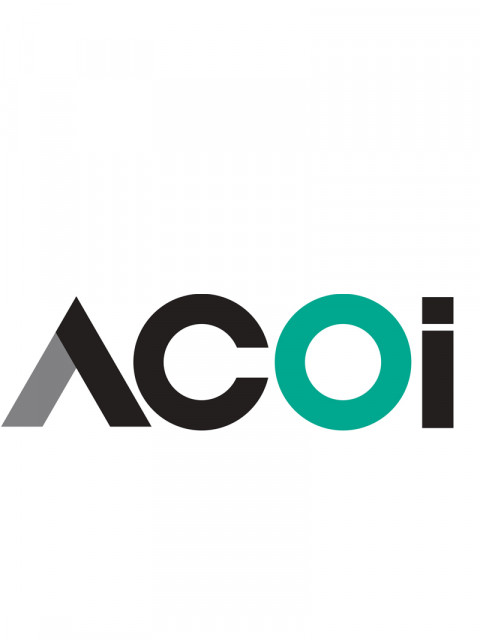
February Government Affairs Updates
by ACOI
February 7, 2025
ACOI is Monitoring Trump Administration Funding Freeze
Update: February 7, 2025
ACOI is closely monitoring the funding freeze to understand how it may impact our members and their patients. At least two federal judges have ordered a suspension of the Trump Administration’s federal funding freeze. On February 3, all federal agencies were required to receive written notice of the temporary restraining order (TRO) on the funding freeze issued by a federal Rhode Island judge on January 31. A memo sent to National Science Foundation employees states the TRO applies to to all awards or obligations — not just those involving the 22 plaintiff States as originally reported — and also applies to future assistance (not just current or existing awards and obligations). The memo also states the TRO applies to all federal agencies “out of an abundance of caution.” Media outlets are reporting some agencies are not yet fully adhering to the court’s directive.
_____________
During the week of January 27, the Trump Administration ordered a freeze on federal assistance funding creating confusion on what programs and grants would be subject to the freeze.
The memorandum ordered Federal agencies to identify and review all Federal financial assistance programs and supporting activities to ensure they are consistent with the President’s new executive orders. The order, however, seemed to implicate programs and grants that were well outside the scope of President Trump’s orders. The New York Times details the 2,600 programs under scrutiny.
The order was temporarily blocked by a judge and the memo subsequently rescinded, although President Trump’s press secretary said the freeze would remain in effect despite the memo being rescinded. On January 31, a federal judge in Rhode Island issued a temporary restraining order that bars the Trump administration from freezing spending on federal grant and aid programs in the 22 Democratic states that filed the lawsuit.
Many non-profit health organizations have reported receiving communications from the Centers for Disease Control and Prevention (CDC) to “immediately terminate, to the maximum extent, all programs, personnel, activities, or contracts promoting ‘diversity, equity, and inclusion’ (DEI) at every level and activity” that are funded by awards or grants from the CDC. ACOI is closely monitoring the situation and will share additional information to help ACOI members who may hold grants or research awards understand what is happening.
ACOI Responds to Draft GME Legislation
A bipartisan group of Senators want to increase the number of Graduate Medical Education (GME) residency positions and distribute them to rural areas and key specialties in shortage. The effort is being led by Sens. Bill Cassidy (R-LA), Catherine Cortez Masto (D-NV), John Cornyn (R-TX), and Michael Bennett (D-CO).
ACOI sent a letter to the senators on January 31, providing largely supportive comments on their draft legislation, including support for earmarking 25 percent of new Medicare-funded residency positions to primary care over the first five years of new residency position distribution. The draft legislation includes 5,000 new residency positions as a placeholder. ACOI encouraged the bill authors to “stake out a strong starting point for residency position increases based on projected need,” and noted ACOI’s past support of legislation that would provide 14,000 new Medicare-supported GME positions over seven years.
ACOI reminded the senators there is a projected shortage of non-primary care physicians and that attracting specialty physicians to rural areas will require other investments and policy changes, including loan forgiveness programs.
The draft legislation prioritizes the distribution of slots to rural and underserved areas and redefines rural hospitals to ensure the residency positions intended for rural hospitals are not diverted to hospitals outside geographically rural areas. ACOI caveated its support for prioritizing GME positions for hospitals in rural and underserved areas by suggesting the designation of a medically underserved area should be about the service region and how many patients are coming to a hospital from rural area. ACOI also reminded the lawmakers it is difficult for rural and medically underserved areas to attract physicians to oversee and facilitate resident training.
ACOI also voiced support for giving hospitals more time to build their residency programs, saying the current five-year limit for hospitals to begin training residents in a new program or expand an existing one is too constraining because of challenges with recruitment in rural areas. ACOI said it supports modifying the current five-year limit with an unlimited amount of time for hospitals to establish a new per resident amount or residency full-time equivalent cap.
ACOI is encouraged with the bipartisan congressional interest in addressing physician workforce shortages and will continue to look for opportunities to engage with policymakers on this ACOI priority.
Bill to Halt Physician Pay Cut Introduced
Legislation has been introduced in the House that would stop the 2.83 percent cut to Medicare physician payment that took effect on January 1 and replace it with a 6.62 percent positive update. ACOI immediately endorsed the legislation and urged that Congress act quickly to advance the bill.
The Medicare Patient Access and Practice Stabilization Act is being led Rep. Greg Murphy (R-NC), a physician and co-chair of the House GOP Doctor’s Caucus. Joining him on introduction of the bill were: Reps. Jimmy Panetta (D-CA), Mariannette Miller-Meeks, MD (R-IA), John Joyce, MD (R-PA), Carol Miller (R-WV), Claudia Tenney (R-NY), Raul Ruiz, MD (D-CA), Kim Schrier, MD (D-WA), Ami Bera, MD (D-CA), and Raja Krishnamoorthi (D-CA).
The legislation wipes out the 2.83 percent cut and provides extra payment to address inflation and offset the deficit from the cut in the first part of the year (January-March). The updated payment adjustment would be in effect starting April 1 through the remainder of 2025.
Legislative activity is accelerating to enact a Fiscal Year 2025 federal spending bill before March 14, 2025 when the current continuing resolution that is keeping the government funded expires. ACOI and other physician organizations will be calling on Congress to add this legislation to a March 2025 government funding bill.

